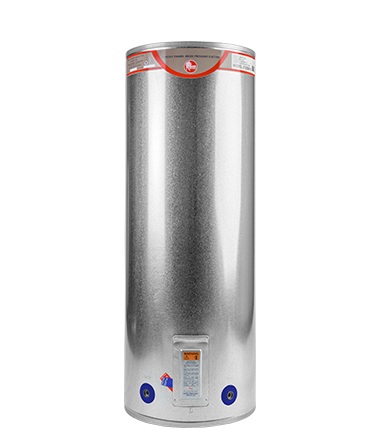Hot Water Heat Pumps: The Eco-Friendly Alternative for Cost-Effective Water Heating
Hot water heat pumps are revolutionizing the way we heat water, offering an eco-friendly and cost-effective alternative to traditional electric and gas water heaters. By using renewable energy from the air, water, or ground, these systems provide an efficient solution for residential and commercial water heating needs. Here’s why hot water heat pumps are gaining popularity as the green choice for modern water heating.
1. How Hot Water Heat Pumps Work
Hot water heat pumps function by extracting heat from the environment and transferring it to heat water stored in a cylinder. Instead of generating heat like conventional systems, they move existing heat from the air or ground, which requires significantly less energy. This heat is absorbed by a refrigerant, compressed to increase its temperature, and then transferred to the water in the cylinder, providing a steady supply of hot water.
This method is highly efficient, as heat pumps typically use only a fraction of the electricity consumed by electric or gas water heaters. With efficiency rates as high as 300-400%, hot water heat pumps can generate three to four units of heat for every unit of electricity used.
2. Energy Efficiency and Cost Savings
The primary benefit of hot water heat pumps is their outstanding energy efficiency, which leads to substantial cost savings over time. By consuming significantly less electricity compared to traditional systems, they can reduce water heating energy consumption by up to 60-75%. This makes them a cost-effective investment, particularly in regions with high energy costs.
Although the initial installation of a hot water heat pump may be higher than conventional water heaters, the long-term savings on energy bills can quickly offset this cost. In the long run, homeowners and businesses can expect to see considerable reductions in their monthly utility bills, making the switch to heat pumps a financially smart decision.
3. Environmental Benefits
Hot water heat pumps are one of the most eco-friendly water heating solutions available today. By relying on ambient heat from renewable sources such as air or ground, they significantly reduce carbon emissions compared to fossil fuel-powered systems. As global efforts to combat climate change intensify, transitioning to heat pumps can contribute to reducing your carbon footprint and supporting sustainability initiatives.
Additionally, many countries offer incentives, rebates, or tax credits to encourage the adoption of green technologies like heat pumps, making them more affordable and accessible to a wider range of consumers.
4. Reliable Hot Water Supply
Hot water heat pumps are designed to provide a consistent supply of hot water, even in varying environmental conditions. Many modern systems come with advanced controls that allow users to set their preferred water temperatures and adjust the system based on household usage patterns. In colder climates, hybrid models with supplementary electric elements can ensure a continuous hot water supply, even when outdoor temperatures drop.
These features make hot water heat pumps reliable for both residential and commercial use, ensuring that hot water is readily available without the high energy costs associated with traditional water heaters.
5. Durability and Low Maintenance
Heat pump hot water systems are durable and require minimal maintenance compared to gas-powered heaters. With a lifespan of 10 to 15 years, these systems are built to last, offering long-term value. Maintenance generally involves simple tasks such as cleaning filters and ensuring adequate airflow, making them easy to care for and cost-efficient over time.
Moreover, because there is no combustion involved, there are fewer risks of component failure, leading to lower repair costs and fewer safety concerns.
6. Flexibility and Versatility
Hot water heat pumps can be installed in a variety of locations, making them adaptable to different home and business environments. Air-source heat pumps are ideal for moderate climates, while ground-source and water-source heat pumps can be used in areas with colder temperatures or specific geographic conditions. This flexibility makes them suitable for a wide range of applications, from single-family homes to large commercial buildings.
Conclusion
Hot water heat pumps represent the future of cost-effective and eco-friendly water heating. By utilizing renewable energy sources, they significantly reduce both energy consumption and environmental impact. Although the initial investment may be higher, the long-term savings on energy bills and the benefits of reducing carbon emissions make hot water heat pumps a smart and sustainable choice for any property. As governments and organizations continue to promote green technologies, hot water heat pumps are quickly becoming the go-to solution for efficient water heating.




Comments
Post a Comment